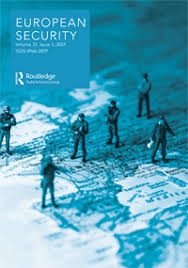Observatori researcher Óscar Fernández (Maastricht University) has published the article “The European Union’s securitisation of global health: was COVID-19 a Zeitenwende?” in the journal European Security. This article is part of the special issue “Zeitenwende” as coming of age? EU foreign & security policy through war & peace,” edited by Heid Maurer, Kolja Raube, and Richard G. Whitman within the framework of the RENPET project.
The article examines how, almost 30 years after the Maastricht Treaty provided a legal basis for health, the European Union (EU) declared global health an “essential pillar” of its external action. However, the EU is still striving to establish itself as a global health actor. The COVID-19 crisis, framed as a war against a common enemy, facilitated the securitisation of health, although it is unclear whether EU institutions systematically adopted this approach, marking a shift in their discourse.
By analysing strategic documents and public statements, the article explores the extent to which COVID-19 drove the securitisation of health in the EU and whether this has strengthened its global capacity for action. It concludes that, although some institutions heightened their “health security” rhetoric, the change was neither broad nor lasting enough to be considered a turning point. Nevertheless, it reflects a trend toward a less altruistic view of the EU’s role in global health.

